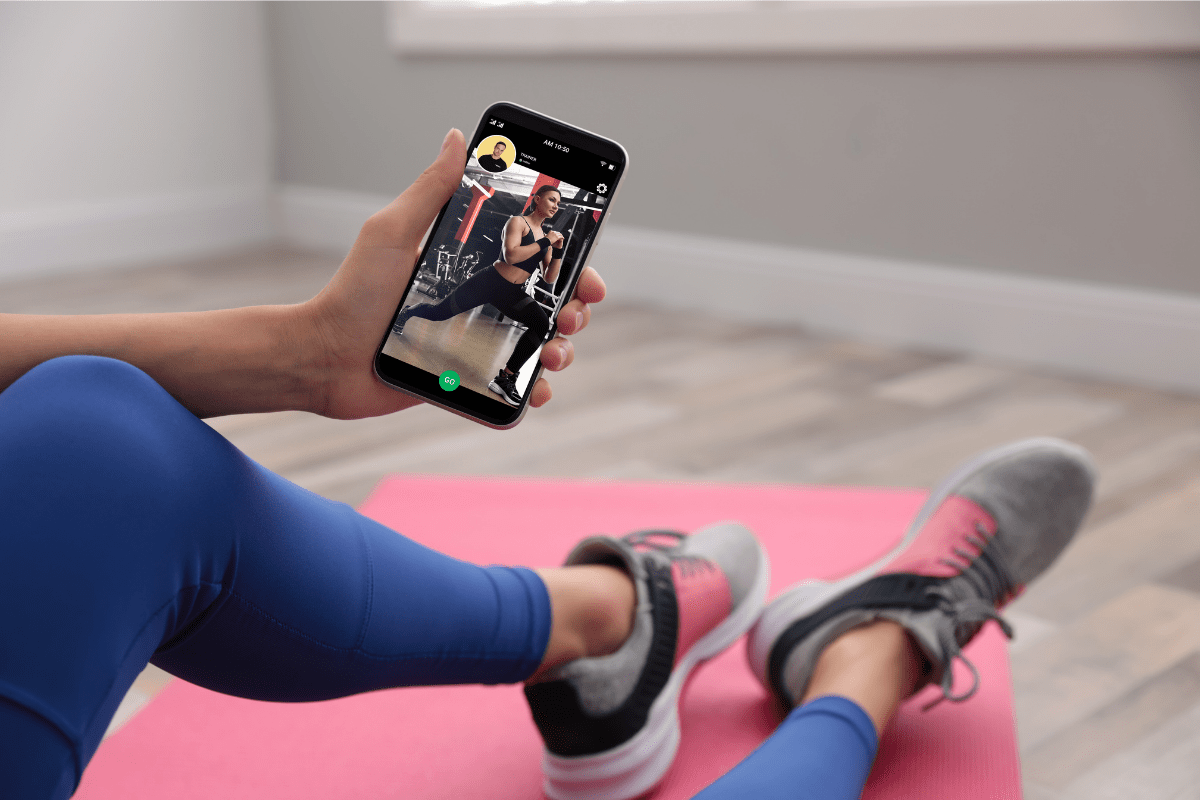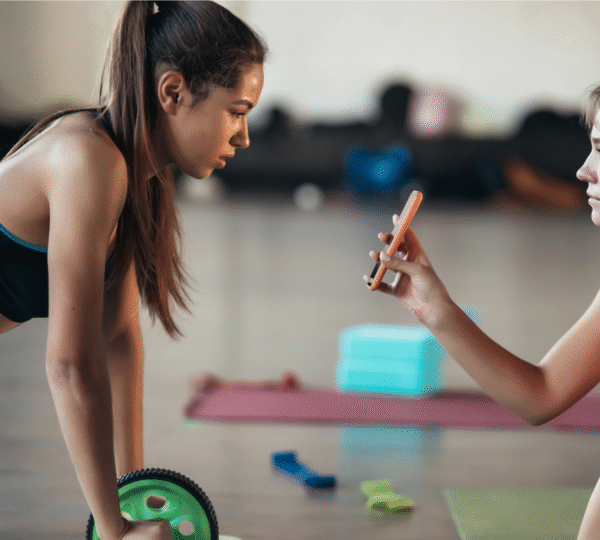
AI Fitness Trainer Applications
Maria had always wanted to get fitter, but her busy work schedule and lack of confidence in the gym held her back. She downloaded workout videos but often felt unsure if she was doing the exercises correctly. Hiring a personal trainer was too expensive. One day, she tried an AI-powered fitness trainer app recommended by a colleague.
To her surprise, the app did more than just list exercises. It watched her movements through her phone’s camera, corrected her form in real time, and adjusted her workout plan based on her progress. Within weeks, Maria was not only exercising regularly but also feeling confident about her technique. She found herself motivated to continue because the app felt like a personal coach in her pocket, available any time.
This story reflects what many people are discovering: AI fitness trainer applications are changing the way we work out by making fitness accessible, affordable, and personal.
What Are AI Fitness Trainer Applications?
AI fitness trainer applications are digital tools that use artificial intelligence to create personalized workout experiences. They combine data from sensors, cameras, and user inputs to deliver real-time coaching, exercise adjustments, and progress tracking.
These apps can:
- Create custom workout plans based on your goals and fitness level
- Provide instant feedback on posture and movement
- Track progress using wearable devices or cameras
- Motivate with gamified challenges and reminders
- Adapt routines as your strength and stamina improve
Fun Fact: A human trainer might see you a few times a week, but AI fitness apps are available 24/7. They never forget your progress and always keep track of your performance.
How AI Fitness Apps Work
-
Initial Assessment
Most apps begin by asking for your fitness goals, current level, and health background. Some even use your phone camera to analyze body movement.
-
Personalized Workouts
Based on the assessment, the app generates a tailored workout plan. If you struggle with push-ups, it suggests easier variations and gradually increases difficulty.
-
Real Time Feedback
Using AI vision and motion tracking, apps like Freeletics or Fitbod AI correct your form during workouts.
-
Progress Tracking
Data is collected from wearables like smartwatches to measure heart rate, calories burned, and endurance.
-
Adaptive Learning
Over time, the app adjusts the routine so you do not plateau and continue progressing.
Experts’ insight
- Dr. Michael Snyder, Stanford University: “AI fitness tools democratize access to personalized training. They can help people who cannot afford or access a human trainer still benefit from tailored guidance.”
- Cassey Ho, fitness entrepreneur: “AI fitness apps lower the barrier to entry. Beginners especially find comfort in apps that guide without judgment.”
- American College of Sports Medicine: Their research shows that feedback-driven workouts significantly improve exercise adherence compared to unguided routines.
Types of AI Fitness Trainer Applications
1. AI Workout Generators
Apps like Fitbod analyze your past workouts and create balanced routines targeting different muscle groups.
Tip: Log every workout consistently to help the AI improve its suggestions.
2. AI Form Coaches
Apps like Freeletics Vision and Kaia Health use your smartphone camera to analyze movements and correct posture instantly.
Fun Fact: These apps can detect if your knees cave in during a squat, a common mistake that can lead to injury.
3. AI Nutrition Integration
Some apps like Lumen and Noom AI combine workouts with diet tracking. They adjust meal recommendations based on your calorie burn and goals.
Expert Insight: Nutritionist Dr. Susan Roberts emphasizes that “AI diet integration creates a powerful synergy since exercise without diet management often leads to slower progress.”
4. AI Wearable Integrations
Apple Fitness+, Fitbit Coach, and Google Fit use AI to analyze data from wearables and suggest recovery periods, sleep improvements, and optimal workout timing.
Tips for Maximizing AI Fitness Trainer Apps
- Be Honest with Input Data: Enter accurate weight, age, and activity level so the AI can tailor workouts safely.
- Set Clear Goals: Define what you want: weight loss, muscle gain, or endurance improvement. AI performs best with specific goals.
- Use Wearables for Better Accuracy: Sync your smartwatch or fitness tracker for more precise results.
- Combine with Human Interaction: Pair AI with group classes or friends for accountability and social motivation.
- Listen to Your Body: While AI is smart, only you can feel fatigue or pain. Do not push through discomfort just because the app suggests it.
Fun Facts
- The global AI in fitness market is projected to reach $23 billion by 2030.
- Some AI fitness apps can count reps more accurately than people themselves.
- AI can detect micro errors in posture that even experienced trainers sometimes miss.
- Gamification in AI apps increases adherence by 45 percent, according to a 2022 study by Fitness Tech Journal.
Overcoming Concerns
Concern 1: Will AI Replace Human Trainers?
Experts say no. Human trainers offer empathy, accountability, and complex motivation strategies. AI simply enhances accessibility and consistency.
Concern 2: Is AI Safe?
As long as users follow guidance and listen to their bodies, AI workouts are safe. Always consult a doctor if you have health conditions.
Concern 3: What About Data Privacy?
Look for apps with transparent data policies and ensure your wearable data is encrypted.
Real Life Success Stories
- James from London lost 15 pounds in three months using an AI-guided bodyweight training program after failing to stick with gym routines.
- Anita from Mumbai improved her yoga posture using an AI vision app that corrected her alignment daily.
- Carlos from Mexico City combined his smartwatch with AI apps and completed his first marathon after a year of adaptive training.
The Future of AI in Fitness
Future AI fitness trainers may use augmented reality glasses to guide users through workouts in real time or integrate with smart gym equipment that adjusts resistance automatically. AI may even act as a wellness companion, analyzing stress levels, sleep patterns, and mental health to create holistic programs.
Expert View: According to Deloitte’s 2024 Tech Report, the convergence of AI, wearable tech, and health data will make fitness highly personalized and preventive rather than reactive.
Conclusion
AI fitness trainer applications are transforming the way we exercise by offering personalization, affordability, and round-the-clock availability. From correcting posture to generating adaptive workout plans, these apps make fitness more accessible than ever.
While they are not a replacement for human trainers, AI tools provide consistent feedback and motivation that many people need to start and maintain healthy habits. The key is to use them wisely, combine them with social accountability, and always listen to your body.
As the technology advances, the line between digital trainers and real human coaches will blur, giving us smarter, safer, and more engaging fitness journeys. Whether you are a beginner or a seasoned athlete, AI fitness trainers can be the partner you need to stay committed and achieve your goals.
References
- Snyder, M. (2023).
- American College of Sports Medicine. (2022).
- Deloitte. (2024). Technology Trends in Wellness and Fitness.
- Fitness Tech Journal. (2022).
- Roberts, S. (2021).












